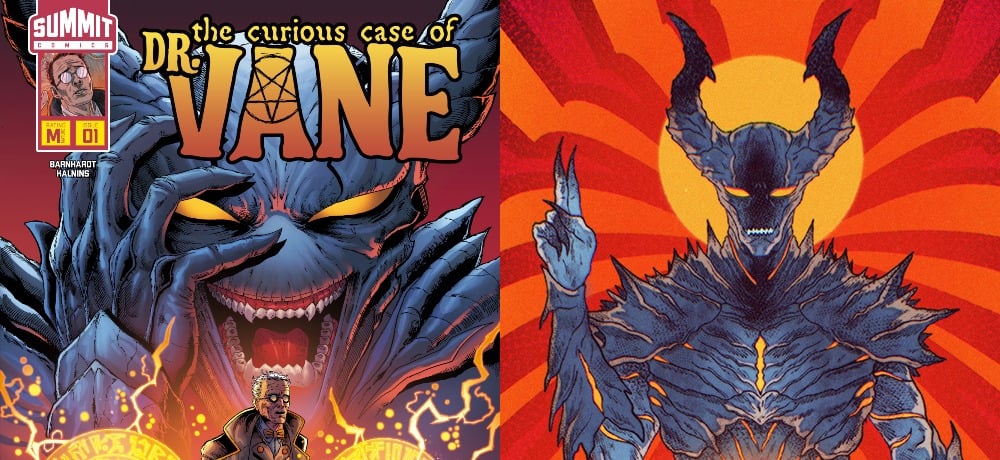





Paranoia is a hell of a drug; feeding on your insecurities until you crumble in a mess of shattered nerves and broken reality. Such is the case with The Brotherhood of the Bell (1970), a tautly wound conspiracy thriller that plays like a top-tier satanic cult TV movie.
Originally broadcast as part of The CBS Thursday Night Movies, Bell was beat by NBC’s Ironside/The Dean Martin Show line-up, but for fans of first rate suspense, the Eye saw all that night.
Let’s open up our ear-marked TV GUIDE to see what secrets lurk therein:
THE BROTHERHOOD OF THE BELL (Thursday, 9pm, CBS)
The secret society that a college professor belongs to will stop at nothing to silence him before he tells the world the truth about their insidious dealings. Glenn Ford, Dean Jagger star.
The telefilm opens with Professor Andy Patterson (Ford – Happy Birthday to Me) arriving at a secluded estate, where he and two other men (including Jagger) initiate Phillip Dunning (Robert Pine – C*H*i*P*s) into The Brotherhood of the Bell, a shadow organization that promises prosperity and wealth to its elite members. The only catch is The Brotherhood may call on you one day to repay the favor.
Such is the case with Andy, who receives a dossier on his best friend and colleague Dr. Horvathy (Eduard Franz – The Thing from Another World) from The Brotherhood. As his friend is about to take a position at another school, Andy is tasked with convincing him not to take the job. Why? Because if the politically vocal Horvathy does, a list of people that helped him defect to the States will be sent to the authorities back in Eastern Europe, ensuring their quick demise. Andy begs and pleads, and when Horvathy discovers the information that Andy has, he resigns himself to the fact he can never escape his past and kills himself.
Distraught, Andy holds himself responsible for Horvathy’s death, and sets out to unmask the organization that unknowingly has been responsible for every step of his career – and his family too. At every turn, Andy is made to believe that The Brotherhood doesn’t exist, as they try to erase his very existence. Can he convince the public to believe him?
The Brotherhood of the Bell isn’t horror, but it certainly skirts it; helped immeasurably by Jerry Goldsmith (The Omen)’s intense score, it plays out like one, and superbly crafted at that. Bell suffocates in tension right from the opening moments; as the induction ceremony for Phillip takes place, the men surround an enormous bell and chant the pledge of The Brotherhood. Were it not for the totem-like nature of the bell (that, and holding it in a darkened basement adds to the mysterious nature of the club) the meeting could come off as a Shriner’s initiation.
Director Paul Wendkos to this point had done mostly television, but he definitely knew how to film for maximum impact; every scene is filled with a sense of dread and foreboding, and he goes tilt-a-whirl with the camera quite a bit to show the mental displacement of our protagonist. Andy is told that a person he met and places he’s been never existed; he’s soon made to look like a crackpot to anyone he tries to tell his story to and the paranoia is palpable.
The script by David Karp (The Defenders) relies heavily on Andy’s paranoia, and yet presents things as such that they are highly believable. Andy goes through a series of events that on the surface are normal, yet within the context of the film are chilling as we’re never shown The Brotherhood in action; their mode is whispers and then they’re gone.
The real ending occurs when Andy, at his wit’s end, goes on a sleazy, reactionary talk show not unlike the later Jerry Springer; hosted by an inflammatory instigator (William Conrad, never better), Andy’s claims are made to seem even more outrageous – instead of showing his truth, he comes off as just another conspiracy theorist in a sea of apoplectic shouting. Ford’s stand up screen persona deepens the impact we feel weighing on Andy; this is one of his best performances.
The Brotherhood of the Bell plays as well today as when it first broadcast; conspiracy theories will never go out of style as long as faceless corporations continue to pull the strings. Sometimes from the shadows.